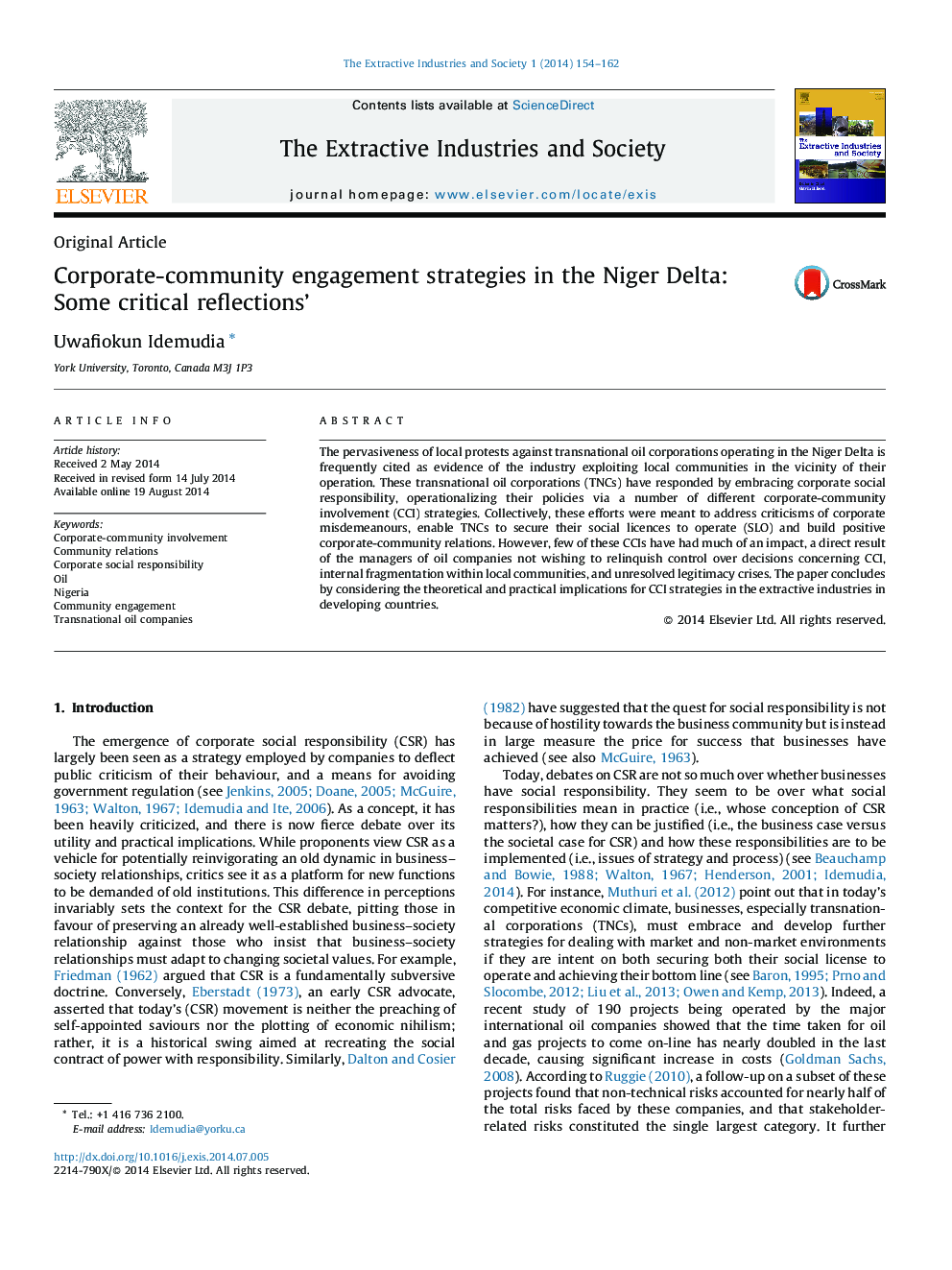| Article ID | Journal | Published Year | Pages | File Type |
|---|---|---|---|---|
| 10502247 | The Extractive Industries and Society | 2014 | 9 Pages |
Abstract
The pervasiveness of local protests against transnational oil corporations operating in the Niger Delta is frequently cited as evidence of the industry exploiting local communities in the vicinity of their operation. These transnational oil corporations (TNCs) have responded by embracing corporate social responsibility, operationalizing their policies via a number of different corporate-community involvement (CCI) strategies. Collectively, these efforts were meant to address criticisms of corporate misdemeanours, enable TNCs to secure their social licences to operate (SLO) and build positive corporate-community relations. However, few of these CCIs have had much of an impact, a direct result of the managers of oil companies not wishing to relinquish control over decisions concerning CCI, internal fragmentation within local communities, and unresolved legitimacy crises. The paper concludes by considering the theoretical and practical implications for CCI strategies in the extractive industries in developing countries.
Related Topics
Life Sciences
Environmental Science
Management, Monitoring, Policy and Law
Authors
Uwafiokun Idemudia,
